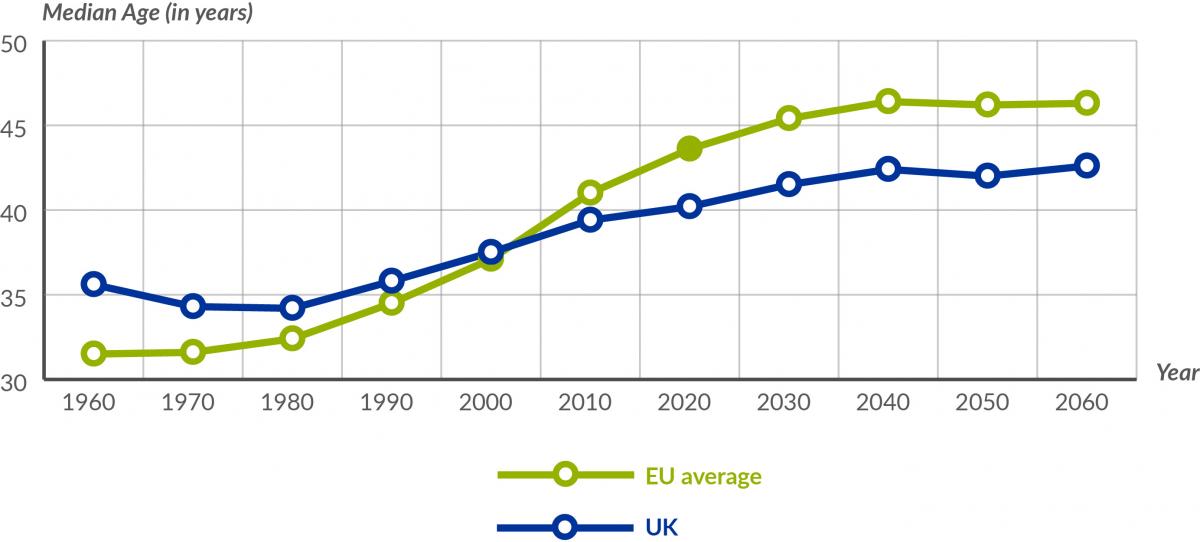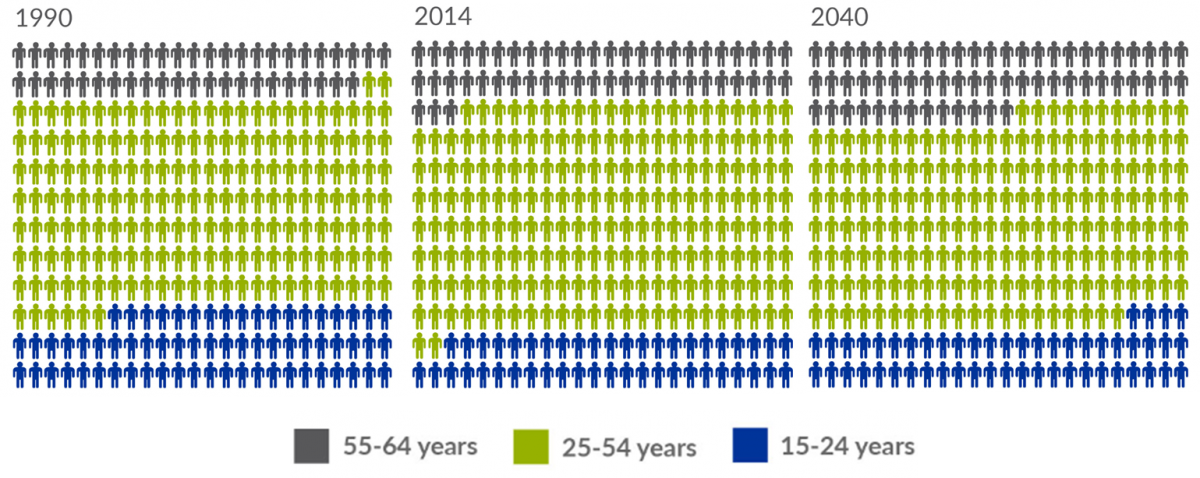Why is ageing relevant for work?
People in Europe are getting older
The population in Europe is ageing: the proportion of older people is growing at a faster pace compared to younger age groups. By 2080, people aged 65 and older will nearly double, to make up one-third of the European population.
The following image shows that the
The age that divides a population into two numerically equal groups; that is, half the people are younger than this age and half are older. (Source)
has increased significantly during the past decades and is projected to continue rising.
The age that divides a population into two numerically equal groups; that is, half the people are younger than this age and half are older. (Source)
: EU average between 1960 and 2060
The ageing of the population goes hand-in-hand with the ageing of the workforce. Less young people are entering the labour market, while the proportion of older people (aged 55-64 years) in the workforce is growing.
In 2011, in the UK, the default retirement age was removed and the state pension age for women will increase to 65 years (in 2017) with a further increase for everyone to a minimum of 66 years by 2020. The number of people working working beyond state pension age has increased to 1.4 million in 2012.
Age composition of the working population (1990-2060)

With an increasing share of ‘older workers’, it is becoming more and more important to think about ageing at work, and especially to understand the relationship between work and age. In recent years, many countries have raised the retirement age and are now looking for ways to prolong working lives. An increased number of people will have to work longer, which means that staying healthy at work is more important than ever.